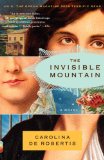Summary | Excerpt | Reading Guide | Reviews | Beyond the Book | Readalikes | Genres & Themes | Author Bio

Pajarita heard all these stories as a little girl—the berries, the songs,
the purple-skinned woman. She had no idea what Guaraní sounded like.
All she heard at home was the Spanish of Tacuarembó, the hum of
fire, the staccato of knife through onion, the low rustle of her aunt Tita's
skirt, the bright lament of her brother's battered guitar, the crows outside,
the hooves of horses, the chickens quibbling, her brother berating
the chickens, Tía Tita's constant fold and clean and stir and cut and
sweep and pour. Tía Tita barely spoke a word, except when she told stories,
and then she was unstoppable, exhaustive, demanding of uncompromised
attention. She told them as she cooked. They purled and
flowed and rushed from her, spilling everywhere, filling their one-room
hut with fluid spectres of the dead.
"You have to know," she'd say, "why your brother is called Artigas,"
and this was Pajarita's signal to come and cut beef for the stew. She knew
the contours of the story just as she knew the knife's shape before she
grasped it. She nodded and came and stretched her ears so wide they felt
like the openings of wells.
"He's named after your great-grandfather. I know some don't believe
it, but José Gervasio Artigas, the great liberator of Uruguay, is my
grandfather—it's true. Yes, he led the fight for independence, with gauchos
and Indians and freed slaves. Everyone knows he did that and next
time I'll tell the story. But he also sowed his seed in the belly of a gaucho's
daughter with hair down to her knees. Analidia. She made the best
blood sausages this side of the Río Negro. She was fourteen. No one will
believe you, but you can't let that matter, you have to be relentless to
keep history alive. Mira, Pajarita, cut the meat a bit smaller. Like
this."
She watched Pajarita until she was satisfied, then bent over the cooking pit and stirred the coals. The raven-haired girl holding blood
sausages hovered behind her, translucent, wide-eyed, palms opening and
closing on the meat.
"Pues, that José Gervasio, he spent one night in 1820 sweating on fresh
hides with Analidia, right before he was defeated by the Brazilians. He
fled to the Paraguayan forest and was never seen again. Analidia gave
birth to a perfect baby girl. Esperanza. My mother. Remember her
name? She was stronger than a bull in a stampede. When she grew
up she fell in love with El Facón, that crazy gaucho, your grandfather.
He was born Ricardo Torres but it didn't take him long to earn his
real name. Nobody wields the facón knife like he did. I'd like
to see the angels try."
Pajarita, chopping, chopping, saw her grandfather, El Facón, as a
young gaucho, holding his own facón up to the sky, blade glinting, dripping
fresh red bull blood to the ground.
"In those early days, before your father and I came along, El Facón
was famous for his sweet voice, touchy temper, and deadly aim. He
roamed the land freely with his facón and his bolas and lasso and he
chased down cattle and took their flesh and hides south to the ports.
He brought home gifts for Esperanza, jewels from India and Rome, fresh
from exotic ships, but she didn't care much about them. They piled up
in the corner of their hut. She wanted him next to her, more than anything,
and so she suffered. When I was born she was alone. She made
herself sick reading the leaves of her ombú and ceibo tea, which bore terrible
warnings. Obvious warnings. War was everywhere. Every season a
new tyrant came through, gathering an army, killing an army off, gaining
power, losing it. Young men cut one another up and threw the pieces
to the dogs. So much blood was shed the earth should have turned red.
Don't make that face, Pajarita. Look, the water's boiling."
Excerpted from The Invisible Mountains by Carolina De Robertis Copyright © 2009 by Carolina De Robertis. Excerpted by permission of Knopf. All rights reserved. No part of this excerpt may be reproduced or reprinted without permission in writing from the publisher.
Your guide toexceptional books
BookBrowse seeks out and recommends the best in contemporary fiction and nonfiction—books that not only engage and entertain but also deepen our understanding of ourselves and the world around us.